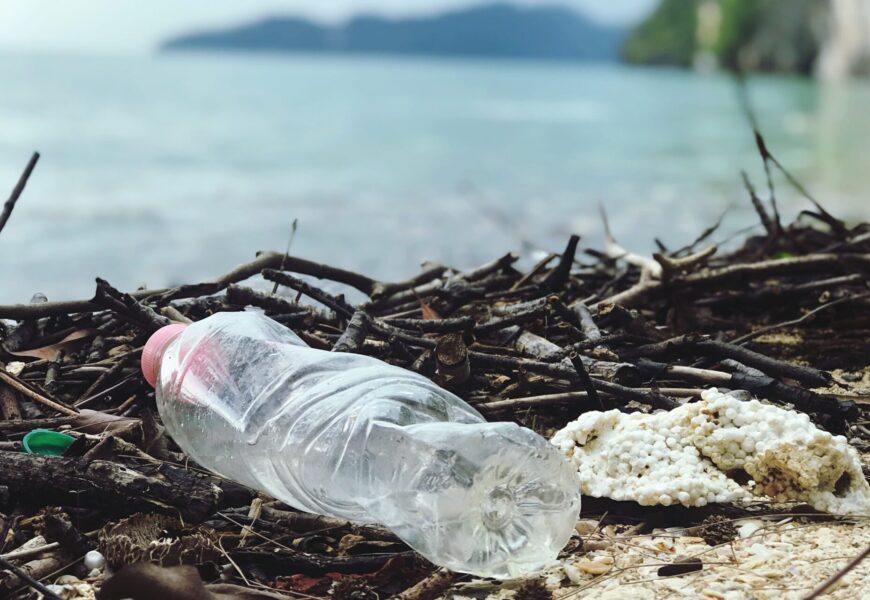Plastic water bottles have become an omnipresent fixture in our lives, but their widespread usage comes at a staggering cost.
In the U.S. alone, it’s estimated we use a mind-boggling 50 billion water bottles per month, which averages out to around 13 bottles per person every month.
These numbers are a stark reminder of the sheer scale of the issue. The convenience of grabbing a disposable bottle on the go masks a profound environmental crisis.
Every minute, a million plastic water bottles are bought around the world, and shockingly, a vast majority of them end up as waste, contributing to a colossal plastic pollution problem that threatens our ecosystems.
It’s a problem that extends beyond the waste we see littering our streets and filling up our landfills; it reaches into the very heart of our environment, affecting wildlife, contaminating water sources, and even entering our own bodies.
This blog post delves into the 15 compelling reasons why we should all seriously reconsider our relationship with plastic water bottles.
From their environmental impact to health concerns, cost considerations, and the availability of better alternatives, this exploration aims to shed light on the multi-faceted issues surrounding plastic water bottles, prompting us to say no to them in favor of a more sustainable and health-conscious approach to hydration.
15 Reasons Say No To Plastic Water Bottle
Environmental Impact
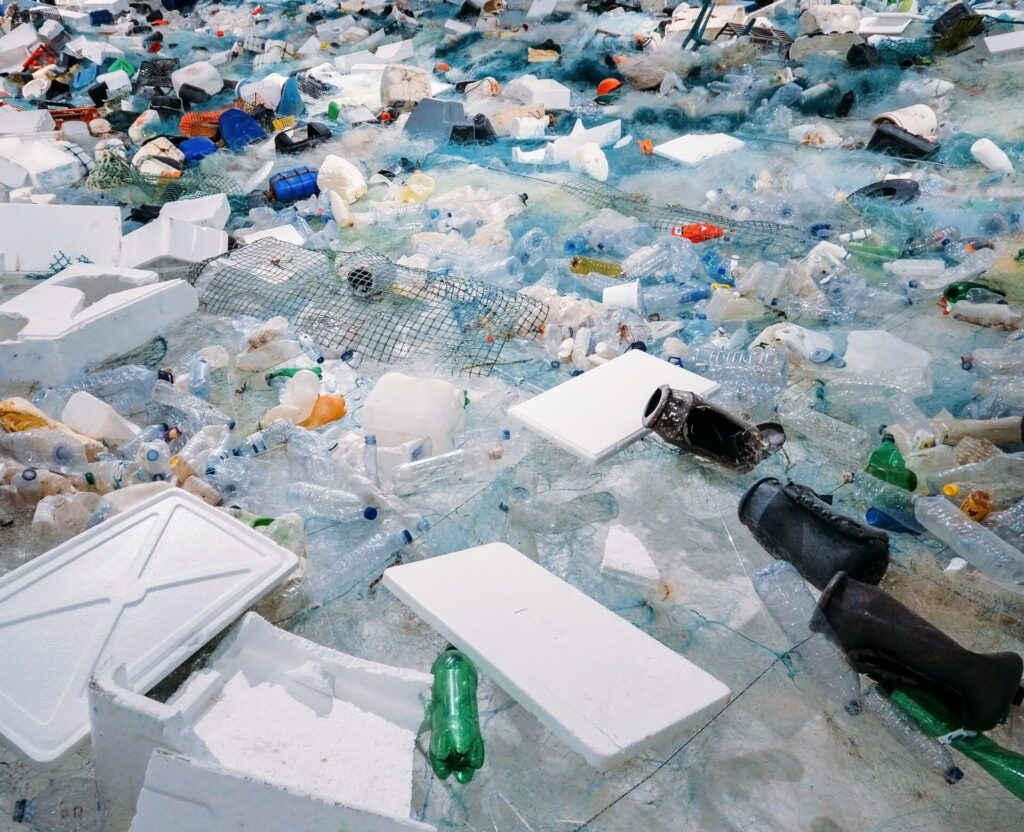
The environmental repercussions of using plastic water bottles are staggering. Every year, the production of billions of plastic water bottles contributes to widespread pollution and litter.
These bottles, made from petroleum-derived plastic, can take up to 450 years to decompose, leaching harmful chemicals into the soil and water during this lengthy process.
Shockingly, a significant amount of these bottles end up in our oceans, where they harm marine life and disrupt ecosystems. It’s estimated that over 8 million tons of plastic enter the ocean annually, and plastic bottles are a significant contributor to this alarming statistic.
The demand for plastic water bottles also leads to resource depletion, with the production process requiring vast amounts of oil and water.
By choosing alternatives to plastic water bottles, we can actively participate in reducing this environmental burden and promoting a healthier planet.
Health Concerns
Plastic water bottles not only harm the environment but can also pose risks to human health. Many plastic bottles are made with materials containing harmful chemicals, such as bisphenol A (BPA).
When exposed to heat or prolonged use, these bottles can leach BPA into the water they contain. BPA is known to interfere with hormonal balance and has been linked to various health issues, including reproductive problems.
Furthermore, recent studies have revealed the presence of microplastics in bottled water, microscopic particles that can enter our bodies when we consume the water.
Opting for BPA-free water containers and exploring plastic-free water bottle options can significantly mitigate these health risks, ensuring that our hydration choices contribute positively to our overall well-being.
Cost Considerations
While the convenience of grabbing a plastic water bottle may seem appealing, it comes at a considerable cost, both to your wallet and the environment.
Bottled water is often significantly more expensive per gallon than tap water, and the hidden costs associated with the production, transportation, and recycling of these bottles further contribute to the environmental and economic toll.
In fact, the production of a single plastic bottle of water can require up to three times the amount of water contained within it.
By embracing cost-effective and eco-friendly alternatives, such as using reusable water bottles or investing in water filtration systems, individuals can not only save money in the long run but also contribute to a more sustainable and responsible water consumption culture.
Quality And Taste
Contrary to popular belief, the perception that water from plastic bottles is of higher quality or tastes better is often a result of marketing rather than reality.
Studies consistently show that tap water in developed countries adheres to more stringent quality standards than many bottled water brands.
The taste preference for bottled water often stems from the perceived purity associated with sealed containers, rather than any actual difference in taste.
By recognizing the high standards of tap water and exploring alternatives to plastic bottles, individuals can make informed choices that prioritize both taste preferences and environmental impact, fostering a mindset shift towards sustainable hydration practices.
Alternative Options
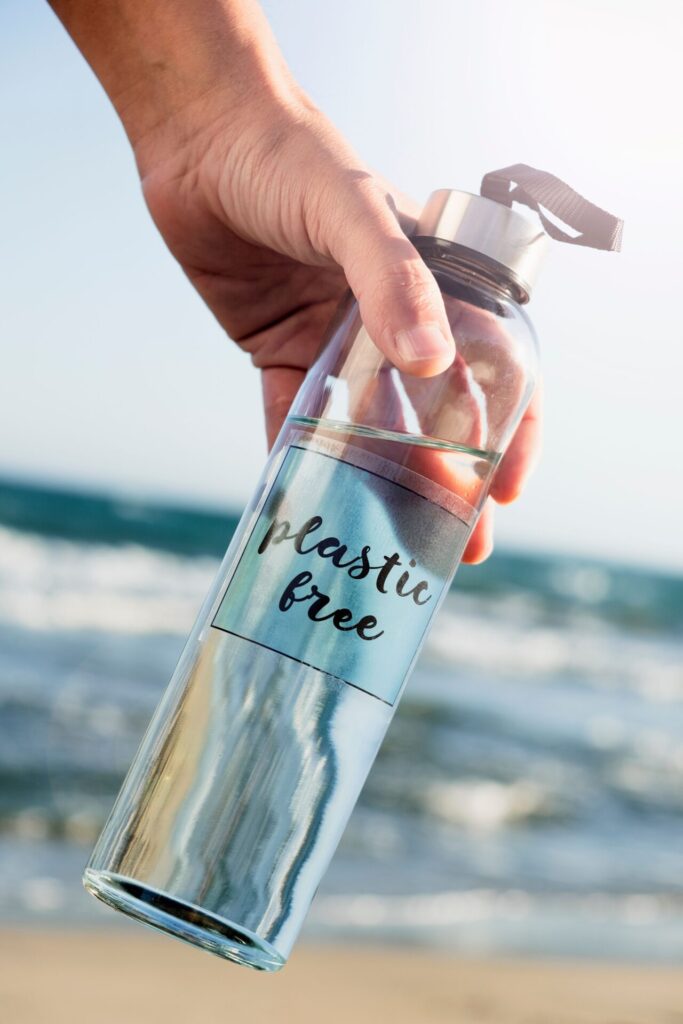
Fortunately, there are numerous alternatives to these water bottles that align with both environmental sustainability and personal health.
Reusable water bottles made from materials like stainless steel or glass provide a durable and eco-friendly option.
Investing in water filtration systems offers a reliable source of clean and safe drinking water directly from the tap, eliminating the need for disposable bottles altogether.
Exploring the market for plastic-free water bottle options, which may include biodegradable materials or innovative designs, further expands the range of choices for individuals seeking to reduce their reliance on traditional plastic containers.
By embracing these alternatives to plastic bottles, we not only contribute to waste reduction but also promote a culture of conscious consumption that benefits both individuals and the planet.
Government Regulations
As concerns over plastic water bottle pollution have grown, some governments have implemented regulations to address the issue. Bottle deposit programs, where consumers pay a deposit on each of the water bottles they purchase, have proven effective in encouraging recycling.
By incentivizing consumers to return empty bottles for a refund, these programs promote responsible disposal and reduce litter.
Additionally, several countries and municipalities have taken more drastic measures by implementing bans on single-use plastics, including plastic water bottles, to combat pollution and minimize the environmental impact of these widely used items.
These regulatory steps are essential in curbing the proliferation of these water bottles and steering consumers towards more sustainable options like BPA-Free Water Containers and plastic-free water bottle alternatives.
Corporate Responsibility
Recognizing their role in the plastic pollution crisis, many corporations are beginning to adopt more responsible practices regarding plastic water bottles.
Some companies are actively working to reduce the amount of plastic used in their bottle production, incorporating environmentally friendly materials and promoting the use of BPA-Free Water Containers.
Others are committing to using recycled materials in their bottle manufacturing processes to minimize the demand for new plastic production.
Consumer awareness and pressure play a crucial role in driving these positive changes, as more individuals seek out alternatives to plastic bottles and support companies with strong environmental and sustainability commitments.
As corporate responsibility continues to evolve, consumers are presented with an increasing array of alternatives to plastic bottles that are both eco-friendly and health-conscious.
Water Scarcity
The production of plastic water bottles exacerbates global water scarcity issues, creating an ironic connection between the very product designed to quench our thirst and a diminishing water supply.
The process of manufacturing plastic bottles is remarkably water-intensive, with staggering figures indicating that the production of a single plastic bottle can require up to seven liters of water.
This not only strains local water resources but also contributes to a broader global water crisis.
Choosing alternatives to plastic bottles, such as reusable options or exploring plastic-free water bottle alternatives, becomes a conscientious decision that aligns with water conservation efforts and addresses the ethical consideration of water scarcity.
Plastic Production
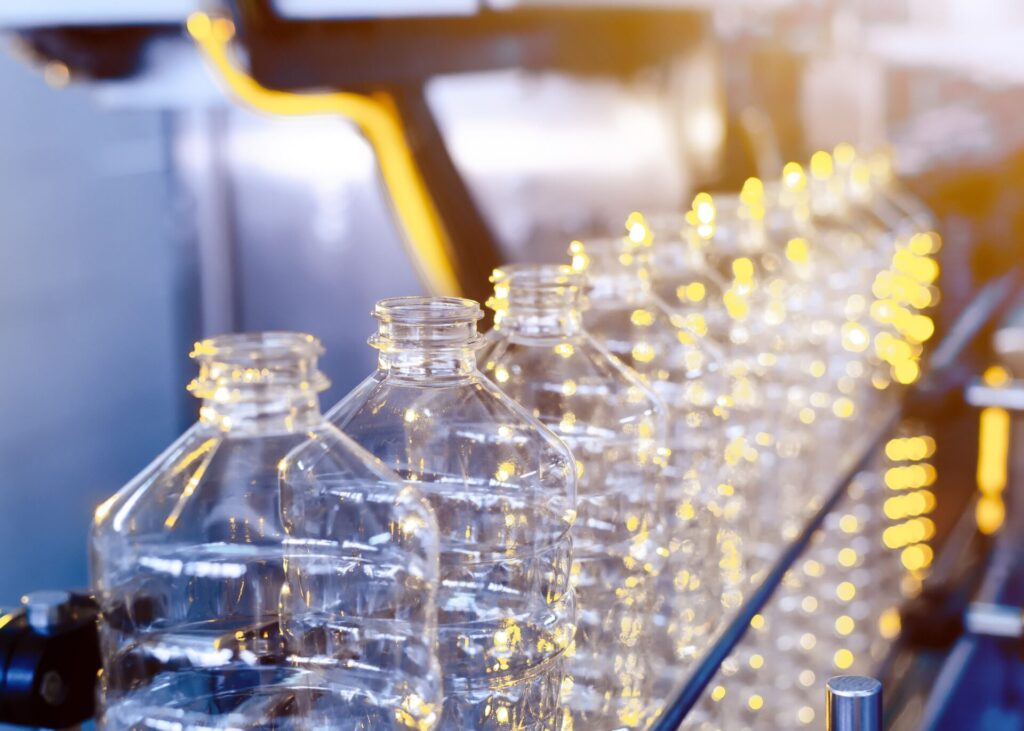
The production of plastic water bottles is intrinsically linked to the petrochemical industry, which significantly contributes to greenhouse gas emissions and environmental degradation.
In the United States alone, the manufacturing of plastic bottles releases over 17 million barrels of oil annually. This reliance on fossil fuels not only depletes finite resources but also contributes to climate change.
By reducing our dependence on plastic water bottles and opting for alternatives like BPA-Free Water Containers or plastic-free water bottle options, we can actively participate in mitigating the environmental impact of plastic production, supporting a more sustainable and ecologically friendly future.
Recycling Challenges
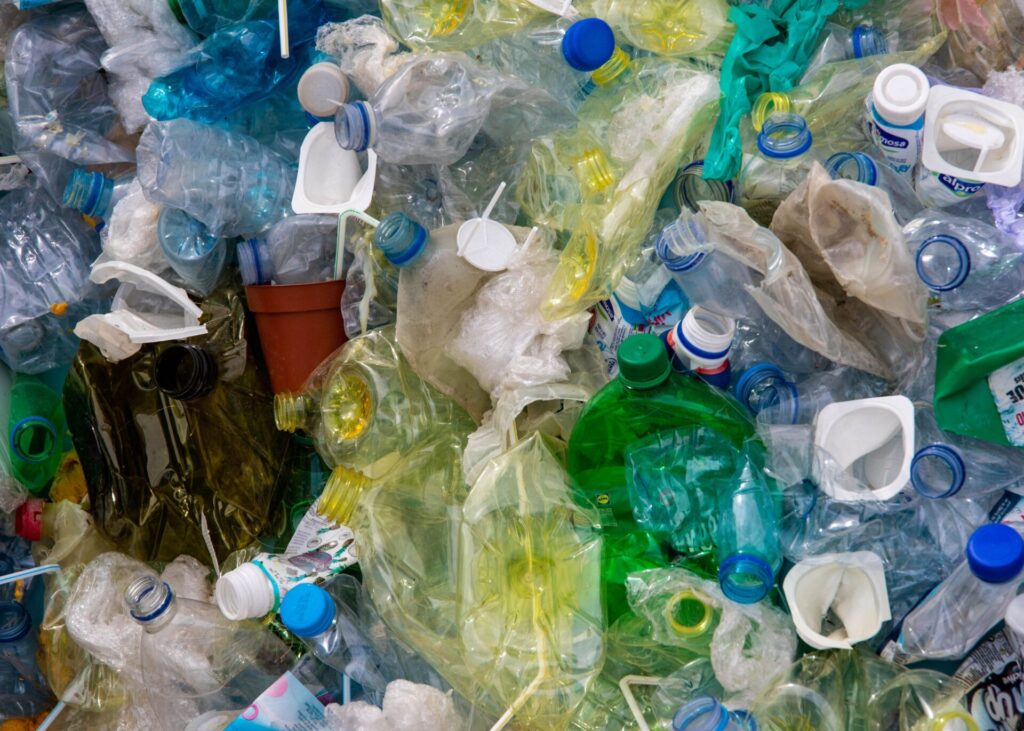
Despite the good intentions behind recycling, plastic water bottle recycling faces substantial challenges. The recycling rates for these bottles remain dishearteningly low, with a significant portion ending up in landfills or as litter.
Even when plastic bottles are successfully recycled, the process is energy-intensive and often results in downgraded plastic that cannot be used for the same purpose again.
This inefficiency in recycling exacerbates the environmental impact of plastic bottles. Exploring alternatives to plastic bottles, such as BPA-Free Water Containers or plastic-free water bottle options, becomes imperative in breaking the cycle of inefficient recycling and contributing to a more sustainable and circular approach to managing our drinking water containers.
Ocean Pollution
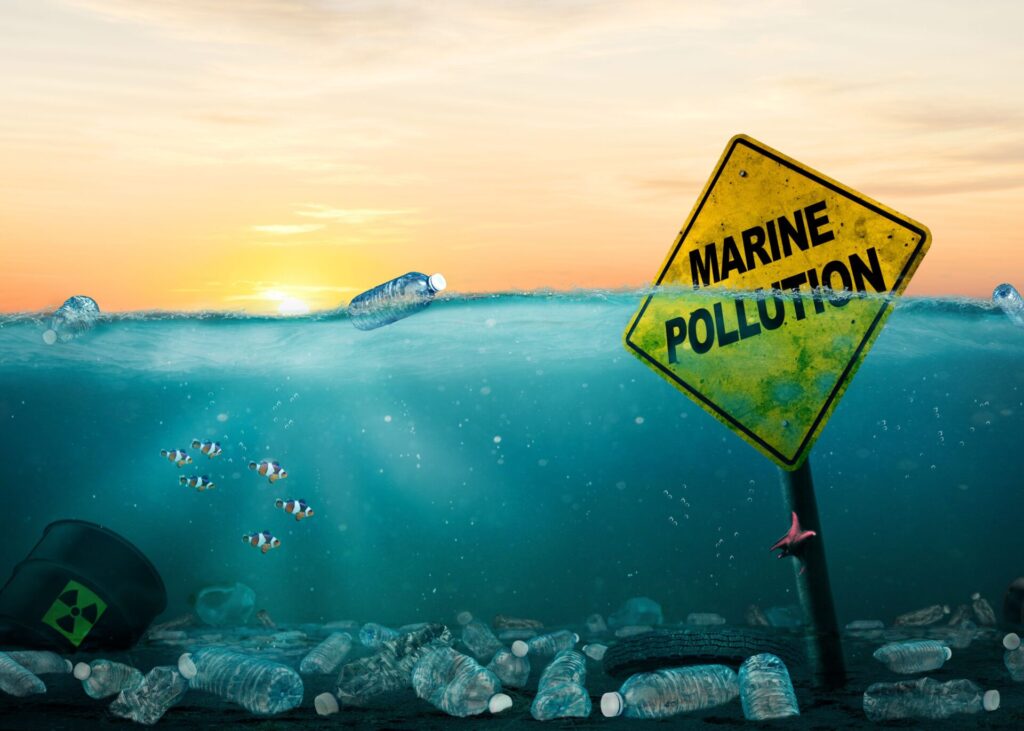
The consequences of plastic water bottle usage extend far beyond environmental concerns, touching upon critical social and community aspects.
Communities located near coastlines, particularly those in lower-income areas, bear the brunt of the ocean pollution caused by discarded plastic water bottles.
Not only does this pollution harm marine life, but it also disrupts the livelihoods of local fishermen and women who depend on healthy oceans for their sustenance.
Plastic waste in the oceans disproportionately affects these coastal communities, perpetuating a cycle of environmental injustice.
By opting for alternatives such as reusable BPA-free water containers or exploring plastic-free water bottle options, individuals can contribute to breaking this cycle and promoting social and environmental equity.
Community And Social Impact
The social impact of plastic water bottles is deeply intertwined with their production and disposal, creating challenges for communities located near manufacturing facilities.
These communities, often low-income and minority populations, experience adverse health effects due to the pollutants released during the plastic bottle production process.
Additionally, the improper disposal of plastic water bottles contributes to litter in these areas, further degrading the quality of life for residents.
By choosing alternatives to plastic bottles, such as reusable and BPA-free water containers, individuals can play a role in alleviating the social burden placed on these communities.
Supporting plastic-free water bottle options not only benefits the environment but also fosters healthier living conditions for all, addressing the social inequalities tied to plastic bottle production and disposal.
Convenience Vs. Sustainability
The convenience of single-use plastic water bottles often comes at the expense of long-term environmental sustainability.
While the quick accessibility of plastic water bottles might seem advantageous, their production, distribution, and disposal have far-reaching implications.
Shifting from a convenience-centric mindset to a sustainability-focused approach involves embracing alternatives like reusable BPA-free water containers and exploring plastic-free water bottle options.
Making this switch not only reduces the environmental impact of plastic water bottles but also underscores the importance of adopting habits that align with a more sustainable future.
Balancing convenience with sustainability means recognizing that the small effort of choosing alternatives to plastic bottles can yield substantial benefits for the environment and contribute to a healthier planet for future generations.
Plastic Pollution
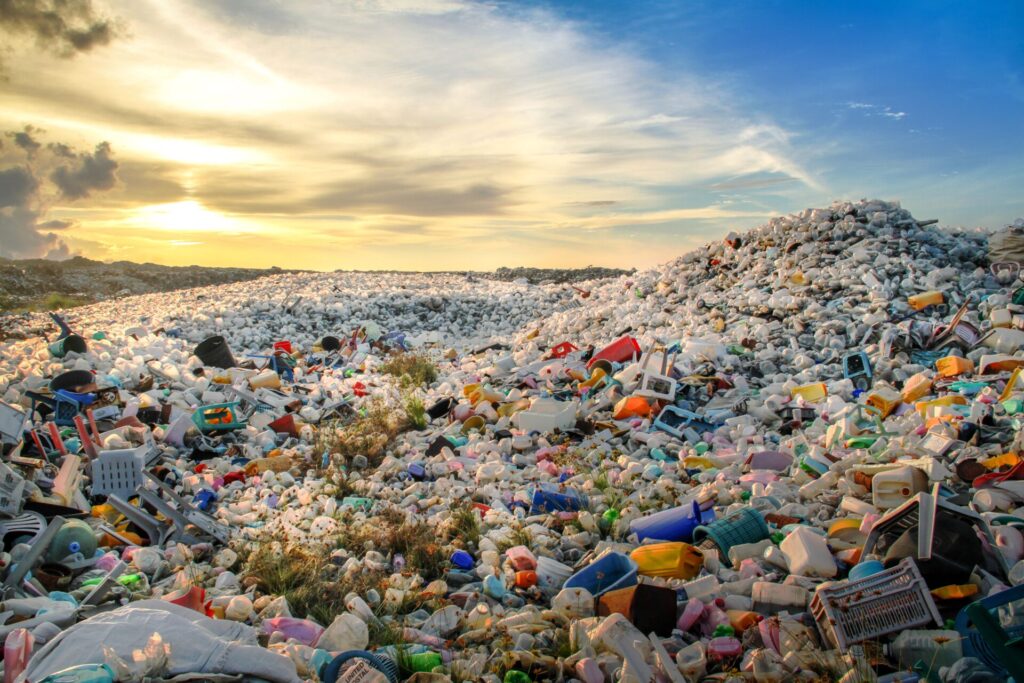
Another sobering reason to steer clear of plastic water bottles is the widespread problem of plastic pollution. When these bottles are carelessly discarded, they often end up as litter in our streets, parks, and waterways.
This unsightly litter not only mars the beauty of our natural surroundings but also poses a threat to wildlife. Birds, fish, and animals can easily become entangled in plastic debris, leading to injury or death.
Moreover, when plastic bottles break down into smaller pieces due to weathering and sunlight, they become even harder to clean up and can persist in the environment for centuries.
This plastic pollution issue is a reminder of our collective responsibility to reduce our reliance on single-use plastics like water bottles and protect the world we share with countless other species.
Landfills And Waste Management
The disposal of plastic water bottles adds to the burden of landfills and waste management systems.
These bottles take up valuable space in landfills, and as they slowly decompose, they release harmful chemicals into the surrounding soil and groundwater. Over time, landfills can become sources of environmental contamination, impacting local ecosystems and communities.
Moreover, managing the disposal of plastic waste is costly, with municipalities and governments spending billions of dollars each year on waste collection and disposal. These expenses are ultimately borne by taxpayers.
By choosing alternatives to plastic water bottles and reducing our waste generation, we can alleviate the strain on waste management systems and redirect resources towards more pressing environmental and community needs.
Closing Thoughts
It’s pretty clear that deciding not to use plastic water bottles is a good idea for all of us. Let me share some eye-opening facts: People worldwide buy a million plastic water bottles every single minute! Sadly, many of these bottles end up in our oceans, hurting sea creatures and our environment.
Plus, the factories that make these plastic bottles are big contributors to climate change.
Recycling them isn’t easy, and most of them just end up in landfills or littering our streets. To make matters worse, these bottles can also release harmful chemicals into our water.
So, saying no to plastic water bottles isn’t just a personal choice – it’s a way to protect our planet and our health. Next time you reach for a drink, think about these 15 reasons and go for a more Earth-friendly option.

